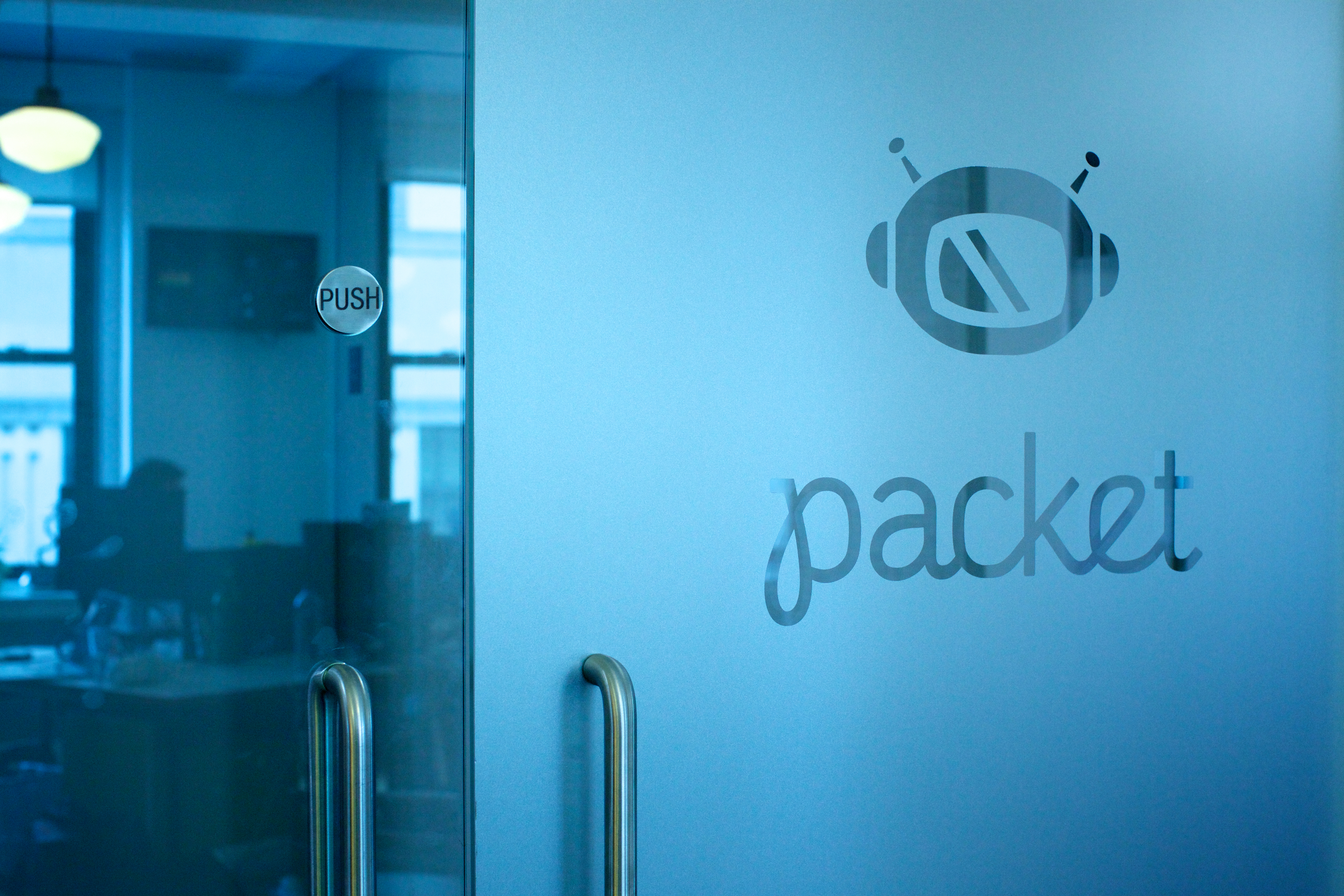 INFRA
INFRA
 INFRA
INFRA
 INFRA
INFRA
There has been a flurry of activity behind the scenes at bare-metal automation platform company Packet Hosting Inc. in recent weeks, and now the startup is ready to reveal what’s up.
Packet announced today a major update to its “bare-metal” cloud platform, which provides server capacity with no software preinstalled. The company also landed a $25 million Series B funding round led by Third Point Ventures, with participation from Battery Ventures, JA Mitsui Leasing and Samsung NEXT as well as existing investors SoftBank Corp. and Dell Technologies Capital. Not least, it announced a trio of new executives.
Packet is a New York City-based startup that’s gaining traction with its developer-friendly service that provides highly customizable infrastructure for running bare-metal servers in the cloud. But instead of just renting server space alongside other customers, Packet’s users can also “own” the hardware they run, so they can tap into its full resources.
Packet came into being after its founders realized that many enterprises are actually paying more for their public cloud infrastructure than they ever did with on-premises gear. Companies don’t want to go back to managing their own hardware, but what they do want is more competitive pricing. They also want to be able to take advantage of specialized hardware such as Tensor Processing Unit chip modules for machine learning applications and other workloads, and that’s where Packet can help.
Packet’s cloud for developers is currently available in 18 locations across the globe and can support up to 60,000 bare-metal installations each month. Essentially what the company does is to automate data center hardware and networks, enabling developers to consume physical infrastructure at scale.
It also offers a “Private Deployment” option for software-as-a-service companies and enterprises that want to leverage customized infrastructure together with the automation and operational benefits of running in a public cloud. So for example, if a customer needs to deploy some TPUs in Packet’s data centers, the company will take care of setting them up and managing them.
Packet is also seeking to address a growing demand from developers and enterprises for more compute power close to the network edge.
So-called “edge computing” refers to the idea of data produced by “internet of things” devices being processed closer to where it is created instead of sending it across long routes to data centers or clouds. Doing this computing closer to the edge of the network lets organizations analyze important data in near real-time, something that can be beneficial to organizations across many industries, including manufacturing, health care, telecommunications and finance.
In an interview with SiliconANGLE, Jacob Smith, Packet’s senior vice president of engagement, said there are actually several “edges” of a computer network, including the “far edge,” where the devices and sensors are physically located, and also various other “rings” leading towards the core network. It’s these outer rings that Packet wants to target with its bare-metal infrastructure.
“Packet’s solutions are not about putting data center grade hardware at the far edge,” Smith said. “We work in concert with devices at the edge of the network by providing robust computing power nearby. This is especially impactful as the networks themselves evolve to become more distributed and more powerful. Bringing powerful, automated and secure compute to the network edge is what we’re working on.”
To that end, Packet is said to be “actively expanding” its infrastructure with new cell towers and data center facilities, and hopes to have no less than 50 up and running by the end of the first quarter in 2019.
The company will also be using its new funds to pay the salaries of its three new executive hires, which include Ihab Tarazi, formerly chief technology officer at Equinix Inc., as its new CTO. The others are George Karidis, former chief operating officer at SoftLayer, who becomes Packet’s new COO, and Thao Nguyen, who previously served as a director of hardware and platforms at Facebook Inc., who takes over as Packet’s new head of technical operations and hardware platforms.
The new funds will also be used to fuel the expansion of Packet’s platform, which will include the release of an on-premises version that powers its public cloud. With its latest platform update, Packet says users can now deploy popular bare-metal server configurations on its cloud in less than 60 seconds, meaning they can get their workloads up and running much faster than was previously possible.
Packet’s rivals include public cloud infrastructure operators such as Amazon Web Services Inc. and Microsoft Azure, and also hosting and colocation providers such as Rackspace Inc. and DigitalOcean Inc.
Support our mission to keep content open and free by engaging with theCUBE community. Join theCUBE’s Alumni Trust Network, where technology leaders connect, share intelligence and create opportunities.
Founded by tech visionaries John Furrier and Dave Vellante, SiliconANGLE Media has built a dynamic ecosystem of industry-leading digital media brands that reach 15+ million elite tech professionals. Our new proprietary theCUBE AI Video Cloud is breaking ground in audience interaction, leveraging theCUBEai.com neural network to help technology companies make data-driven decisions and stay at the forefront of industry conversations.